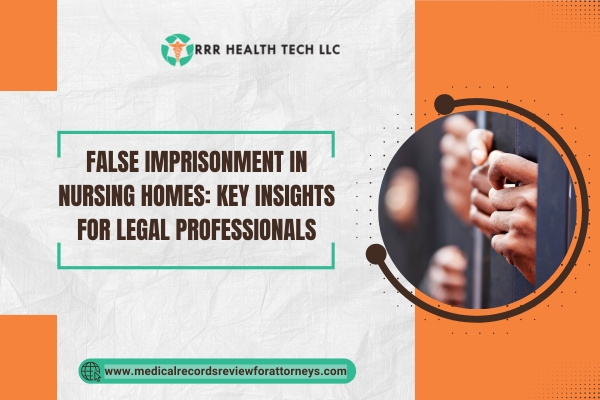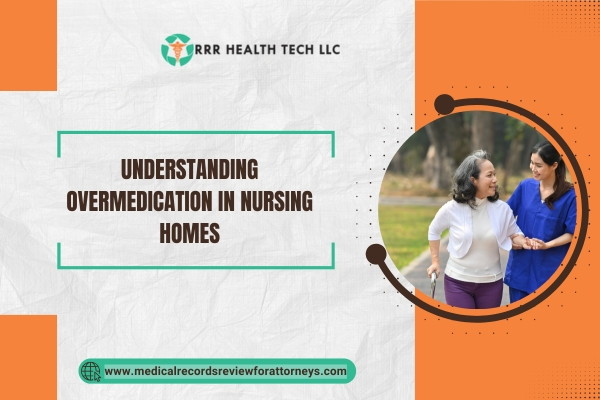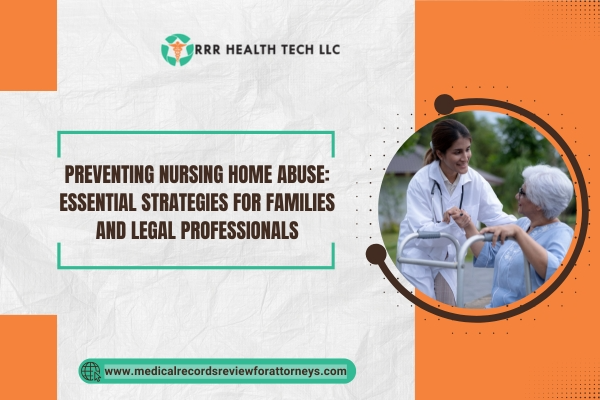
I. Introduction
False imprisonment has become a significant issue in nursing homes and has the potential to cause substantial physical and emotional distress to individuals in the facility. In our legal capacity, understanding the complexities of false imprisonment is crucial for protecting the rights of victims. We will look at the meaning of false imprisonment, how it relates to the nursing home neglect, and why a thorough examination and interpretation of medical records is necessary in constructing the best case.
II. What is False Imprisonment?
Definition and Legal Framework
False imprisonment refers to the illegal restraint of an individual’s free movement. Legally, it happens when a person is held against his will without any lawful justification. Being detained against one does will can occur by means of physical barriers, intimidation, or even through threats.
Examples in Nursing Homes
- Physical Restraints: This includes the use of straps or belts with the intention of restraining residents in bed or on a chair.
- Locked Doors: This is where doors and other exits are used to prevent residents from moving out without permission.
- Parole: Residents are intimidated that there will be repercussions if they are caught absent from their usual surrounding for instance a room.
III. Connection between False Imprisonment and Nursing Home Neglect
Forms of False Imprisonment in Nursing Homes
False imprisonment can manifest in various ways within nursing homes, including:
- Restraints in the Absence of Medical Need: residents are restrained without any medical justification.
- Isolation: The use of force to hold residents within their rooms.
- Neglecting to Provide Freedom of Movement: Failure to allow the residents to engage in activities located away from their rooms.
Impact on Residents
The impact of false imprisonment on nursing home residents can be profound, leading to:
- Emotional Distress: Anxiety and helplessness.
- Physical Health Decline: Due to reduced mobility, chances of developing pressure sores and other medical complications rise.
- Dignity Diminution: Residents might feel dehumanized and their ability to make decisions being taken away from them.
IV. Legal Recourse for Victims
Civil Lawsuits
People affected by or their loved ones who have been wrongfully confined in an elderly care home can bring forward a civil suit against the home or individual staff responsible for this. Damages are sought, including reimbursement of medical bills as well as compensation for emotional stress suffered.
Criminal Charges
In some instances, wrongful conviction also brings along criminal cases against the tasked caretaker or the given staff of the elderly care home. A victim’s lawyer should be conversant with the law affecting such charges.
Role of Medical Records in Legal Cases
Medical records play a crucial role in substantiating claims of false imprisonment. They can provide evidence of:
- Physical Restraints: Evidence of use of any restraining devices and relevant reports on the use
- Mental Health Evaluations: Materials documenting the psychological effects confinement has on the resident.
- Incident Reports: Documents on the use of restraints or confinement that may substantiate the allegation.
V. Case Studies
Case Study 1
Overview: At a nursing facility, a resident was locked in her room for long periods of time without reason.
Problems: The administration of the facility absolved themselves of the allegations, starting that the involved resident posed a threat to herself and others.
Solutions: By performing a thorough review of the medical charts, the attorney was able to find additional notes about the resident’s mental health status which refute the administrative claims.
Case Study 2
Description: The resident of a nursing home was kept in physical restraints for a number of weeks and was not recorded in the documentation.
Problems: The case was hard to prove since the record books of the facility were scanty.
Solutions: The attorney carried out interviews with staff as well as other residents in support of the allegations of false imprisonment.
VI. Conclusion
Attorneys who represent nursing home residents who may be at risk of discrimination or neglect need to have a clear understanding of what false imprisonment entails. As an attorney, it is your responsibility to notice the indicators of false imprisonment and the role of reviewing medical records in constructing evidence based case. As the future of nursing home care advances with new changes, it is crucial to be aware of the legal restrictions and obligations.


